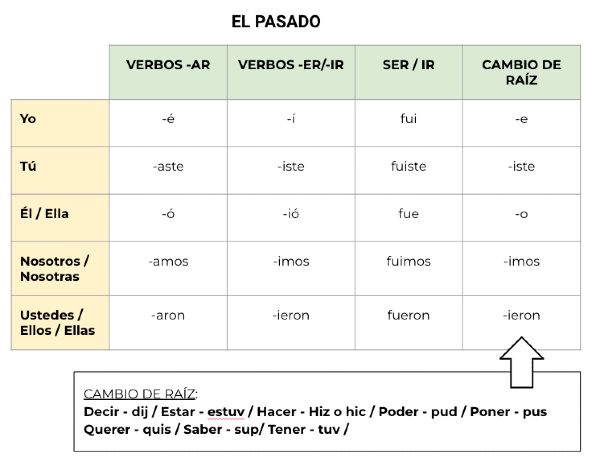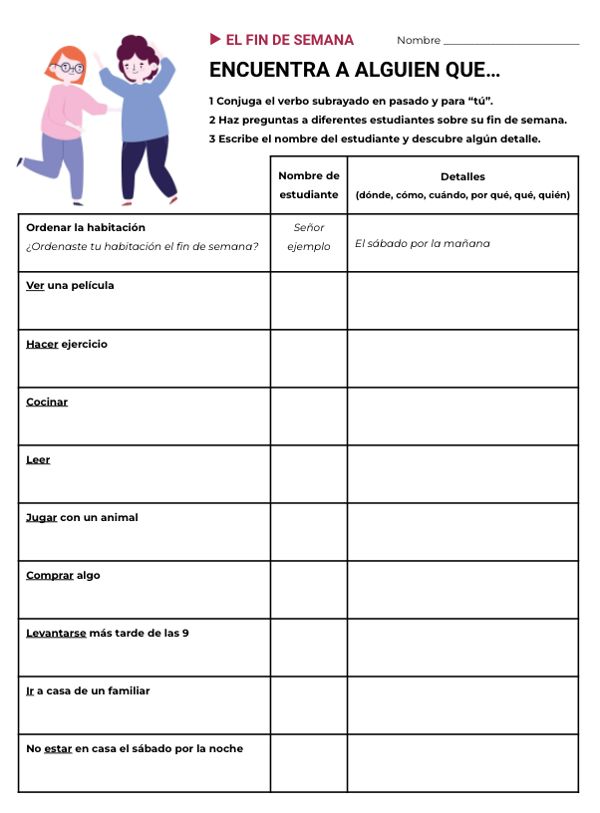Objective: encourage students to use Spanish in a conversation with other students
Required materials: a copy of the handout for each student
Preparation: minimal
Time: about 40 minutes, depending on the class size.
Number of students: this activity works better with classes over 10 students
Resources:
- El fin de semana - Pretérito indefinido: PDF - Google slide
- Join Bablingua to access the file about reflexive verbs and daily routines
Directions:
I like to start my Monday classes asking students wat they did on the weekend. However, asking the same question week after week makes it too repetitive and not very engaging. This activity is another way to talk about the weekend, and practice the past tense, in a much more fun way.
First of all, make copies of this hand out (Google Slide - PDF). Give one to each student and explain the activity using the first row, the example.
Students need to conjugate the underlined verbs in the past tense for "tú" so they can later ask questions to their classmates. If they need to review the conjugation, you can also copy the chart of page 3 and show them how to use it.
Check that they have the right tenses: viste, hiciste, cocinaste, leíste, jugaste, compraste, te levantaste, fuiste and estuviste. Then, tell them they need to walk around the class and ask those questions to different people.
If someone answers "sí" to a question, the student who asked the question should ask a follow-up question:
- ¿Viste una película el fin de semana?
- Sí.
- ¿Qué película viste?
- Encanto.
The student who asked the question needs to record those answers to fill out the second and third column. Then, they can switch roles before moving away to ask other people.
Encourage students to get answers from different peers, they shouldn't use the same name twice.

Follow-up activities:
Once students fill out the paper, ask them to write sentences using the third person singular (él/ella) about 5 of their answers. Give them an example such as this one:
- Sam vio Encanto el fin de semana.
That way they'll practice how to use tú and él/ella in the past tense.


